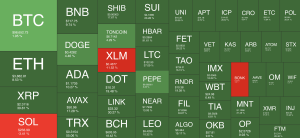
On 24 October, Poseidon DAO hosted Andrea Chiampo and Raphael Lacoste, two remarkably successful artists who both come from the world of graphic design, at its regular weekly meeting. The artists talked about their professional backgrounds.
Andrea Chiampo
Chiampo, in addition to being a successful NFT artist, has worked and still works as a graphic designer for entertainment industry majors, including such names as Disney and Netflix. The artist says he discovered his artistic calling in his college days, when he started being a concept artist as a hobby, creating a portfolio and sharing his work online.
Working as a freelancer, he has always managed to set aside time for himself to pursue his passions like, for example, his work with NFTs. Stepping out of his comfort zone to create something for which he is solely responsible, for better or worse, has been very positive for him.
The artist explained that:
“When doing work for a client, you rarely have the time and space to fully create and express your art, whereas with NFTs, starting from a blank digital canvas, you can fully express yourself, play with images and your ideas.”
Chiampo then spoke about how his works are perceived by the public, which are often considered scary, dark and even deadly, In reality, his message is much more complex. What he wants to portray is an inner dimension, connected to the subconscious, a kind of noisy silence, one might say, that emerges during the creative process. His intent is to tell a story that surfaces in his mind almost randomly, during the moment, when he is immersed and concentrated in the work.
Raphael Lacoste
Raphael studied at a private school in France, where he was able to devote himself fully to his passion for 3D animation. Inspired by the teachers, but also by the world of festivals dedicated to comics, he then started working in the video game industry as a junior artist. NFTs were a way for him to continue to indulge his passion for art and give expression to his creative vein.
Indeed, thanks to NFTs, he was able to express his ideas without any filter. “Working in the commercial field,” Raphael explained, “means, first and foremost, constantly dealing with a team, and this inevitably means losing control over certain details and finding the right balance between product design, technical direction and required delivery time, while working for yourself allows you to stay true to your ideas and do what you love, without any limitations and with the possibility to experiment.” Not only artistically, but also financially, NFTs have been a vehicle for the artist to achieve independence, allowing him to focus only on his personal projects in order to leave a legacy.
Lacoste then talked about his experience as a 2D and 3D photographer and his relationship with this traditional tool. For him, photographing is a completely immersive process, allowing him to perceive what is not immediately perceptible, such as variations in light. Lacoste uses photography as the Impressionists did when they painted en plein air the same subject as the hours of the day and the seasons changed. For Lacoste, the work, often considered purely technical, of taking pictures of the same object every two or three minutes, is instead an opportunity to capture the most minute variations in light and try to make them personal.
Finally, Chiampo and Lacoste revealed some of their sources of inspiration. Lacoste was mainly inspired by the early periods of his work and, as mentioned above, by what he learned in his school years in France. While for photography he says he appreciates the work of Gregory Crewdson, for the creation of the environments and landscapes he drew inspiration mainly from the painting of European Romanticism.
Chiampo, on the other hand, says he is inspired by his own childhood, his experiences and the beautiful things he happens to see. On an artistic level, important to him were both the Renaissance masters, whom he considers models especially in the use of light-based contrasts, and the work of Gustave Doré, engraver and author of the famous illustrations of Dante Alighieri’s Inferno.




















